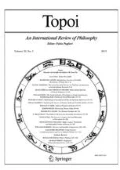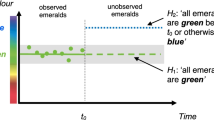Abstract
In this paper I consider three necessary conditions for a proposition counting as a theory: that the proposition be posited for its explanatory power; that it derive its feasibility from the extent to which it provides such explanatory power; and that it be empirically falsifiable. I then argue that some propositions might fail as theories because they do not satisfy the first two conditions, yet still satisfy the third condition. Such propositions I label “falsifiable non-theories.” I offer folk psychology (the proposition that beliefs, desires, and other intentional phenomena exist and play essential motivational and causal roles in many human actions) as a paradigm example of a falsifiable non-theory. I then argue that theism is in an analogous position. Like folk psychology, it fails to satisfy the first two conditions above for most theists. However, the empirical implications that theism has do make it susceptible to falsification. I demonstrate such falsifiability by an extreme scenario from Keith Yandell. Then I argue that recent work by Paul Draper demonstrates how a well articulated empirical argument from evil might threaten just such falsification.
Similar content being viewed by others
Author information
Authors and Affiliations
Rights and permissions
About this article
Cite this article
Sennett, J.F. Theism and other minds: On the falsifiability of non-theories. Topoi 14, 149–160 (1995). https://doi.org/10.1007/BF00769720
Issue Date:
DOI: https://doi.org/10.1007/BF00769720




